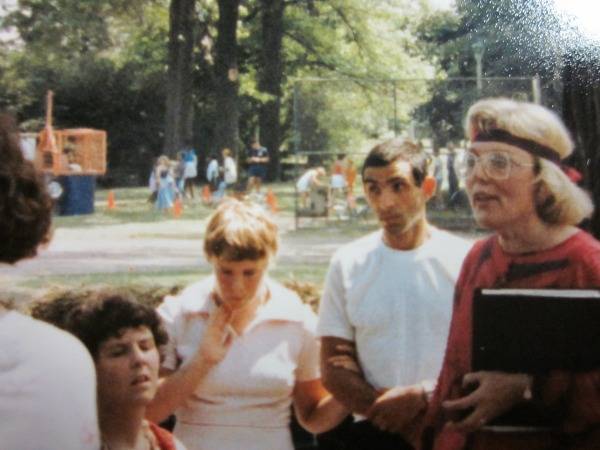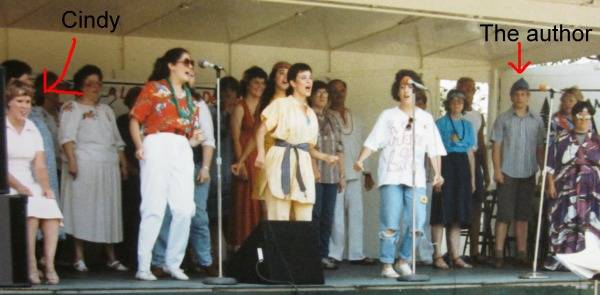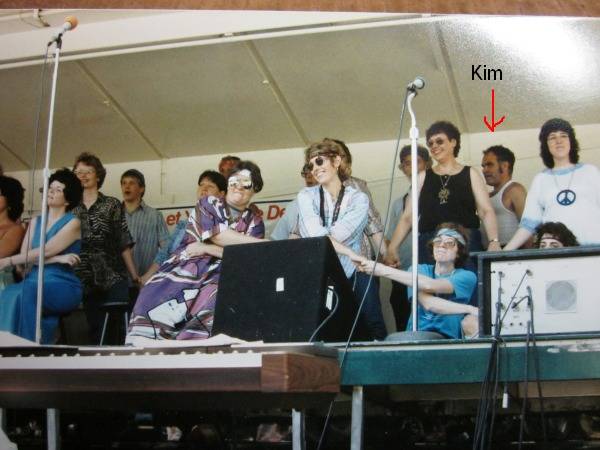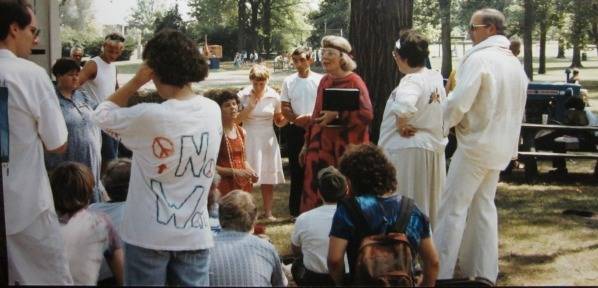
Cindy Combs died. David Combs survived, despite critical injuries. Errol Maul drove straight into them. These are facts you’ll know well if you read Smile Politely regularly.
You might have strong opinions about The Combs-Maul Affair. But do you really care?
No, you don’t.
If you really cared, your outrage would take on an activist dimension. You’re still sitting there, reading.
HOW COULD WE PREVENT THESE CATASTROPHES?
It’d be easy to prevent future tragedies like Cindy and David’s. But we won’t prevent them, because that would be a hassle. We’d have to monitor our own behavior, and we don’t want that.
There’s an easy solution to distracted driving. If we had dashboard cameras, we’d be better drivers. Knowing the police (and our insurance company) could access our Little Black Box, we’d quickly adopt a new regard for the steering wheel. “Hands at 10 and 2” would become as silly in case law as it is in Driver’s Ed. But “paying attention” would decide verdicts.
If we wanted to stop drunk driving, every car would be equipped with a breathalyzer in its starting mechanism. As an add-on, it’s no more expensive than a CD player, cheaper than air-conditioning.
Don’t bother arguing the merits of these ideas. You’ve won already. You have the majority of voters and legislators on your side. Collectively, we don’t care.
AN APPROPRIATE LEVEL OF BIG BROTHER
We tend to shrink away from “surveillance” out of principle, even though surveillance is a great help to justice. If all cop cars had cameras installed, no cop could get away with beating the shit out of us. (Cops know all about it, that’s why they hate evidence.)
When should we allow surveillance? Where should we demand our electronic eyes?
The simple distinction is public versus private property. Clarence Thomas and Antonin Scalia willingly jump into bed with Ruth Bader Ginsburg and David Souter to draw the line at your front door.
I think you should be free to do anything in your home. Smoke dope, fondle chickens, euthanize cancer-stricken friends; I don’t see how any of us has a right to stop you.
It’s different on the public highways. Your car is not your home.
But these days, people treat their cars like their homes. They eat, sleep and talk on the phone while driving. If we cared about David and Cindy Combs, we’d not tolerate this lackaday attitude toward driving. We’d enact legislation to strongly remind people that cars and homes are different.
WHY DON’T WE CARE?
We can’t agree on appropriate circumstances for government intervention. Some people think the government is too heavy-handed for preventing toxic waste dumping. Many of these same people think it’s appropriate for government to perch over your bed, to proscribe sex acts.
It’s when government happens to you that you start to care. Until any issue affects you personally, it’s just a lot of whiners making noise.

TWO UNIMPORTANT PEOPLE
I vaguely remember Cindy and David from our summer singing The Sound of the Sixties with the Parkland Choral Union. I think I might have been touched by their symbiosis.
I better remember Kim Martinie, who like Cindy is blind.
Kim and I stood together among the baritones. I liked that guy. Great jazz voice, for both speaking and singing. He exuded that rare, cool roll-with-it aspect endemic to jazz cats.

But you know, I don’t really care about him either.
I saw Kim two Decembers ago, collecting for the Salvation Army at the Sunnycrest Walgreens. He didn’t see me, as usual.
Instead of saying hello, I biked home and set the kettle boiling. I returned with a flagon of jasmine green tea, and a copy of my 3rd album. I gave them both to Kim.
These are the spirited, selfless acts we perform for the disabled. We pat ourselves on the back, and feel good about our compassion.
I haven’t seen Kim since, and I haven’t gone looking for him. Why? Because I don’t really care.
I would totally hang with him if we ran into each other. But even as I write this column, I’m not pledging myself to become a more proactive person.
Frankly, I got what I needed out of Kim. If I run into him again, I might take some more. I unilaterally decided the terms of our relationship. It’s a tacit one-night stand. I’ll still respect him.
I think most of us are that way.
I happened upon an old friend who’d snuck into C-U recently, and he briefly explained his rationale for not telling anybody he was coming. I completely understood what he meant. It’s awkward to make plans. There’s a responsibility involved. It’s easier to just show up at the old watering hole, and hang out with whichever old compatriot stumbles in.
It takes a major effort to motivate ourselves. In an automated world, it’s no longer necessary to interact with the baker, the butcher, fellow locals at the village well. We get enough social interaction through electronic means. It even provides us with sex, of a sort.
Dealing with actual people is increasingly less necessary. Often, it’s categorized under “work” or “errands.” Sure, we still choose to interact with people when it suits our needs. But definitely not when it’s inconvenient. We just don’t care enough.
And if it requires us to fundamentally change our own behavior? How could we possibly care enough about two social outliers to do that? Sure, if Cindy and David were the subject of a bittersweet docudrama, we’d go see it. We’d cry. And then, we’d feel good about ourselves again, because we’re so compassionate.
Could Cindy and David Combs affect us enough to change our laws? To inconvenience ourselves?
Don’t worry. They won’t.









